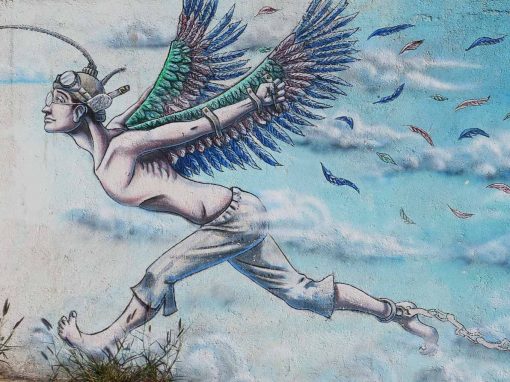So much to do, so little time.
It’s like this all the time past a certain point and we better get used to it.
We might have a list of at least 20 things we could be doing at this very moment and yet we have to choose one. “If only I had the time” we say — but we know deep down inside we don’t actually want it to be like that.
We wouldn’t want to be in a position where we lose all the things we’ve been working on so that we can focus on those extra we want to add, the ones that are under “If I had the time”.
The interesting thing, I’d say, is that you and I have seen through experience that the Pareto principle applies. Maybe you don’t want to call it that but indeed some big chunk of your results (the 80% bit) comes from the small chunk of actions (the 20% bit).
I believe that throughout the keynotes I’ll be having amongst the following years I’ll always include this bit of talking where I take the Pareto distribution and go through my explanation of why that is happening.
I’m also hoping it’ll be a deeper explanation than it is today.
So why does this Pareto distribution happen?
Because of freedom. I’m not saying it as a bad thing or as a good thing — I’m saying it as it is. In a free system, we (as humans) tend to distribute into this pattern.
The coolest 2-3 kids you’ve ever known in high school were there much further than the rest. That is, unless you went to a high school where freedom was not a very stable aspect.
When TV is restricted like it used to be in the communist countries, indeed, this 80-20 distribution doesn’t happen. But in a “free market” of TV channels, it does.
In Google results, it happens. In Bing as well.
You know how the wealth is distributed in the world, you’ve seen the headlines.
So why does freedom lead to a Pareto distribution? What’s the thing with being the best and having so much distance between “best” and “the rest”? Why is it that the best accumulate at the top and the rest create the long tail?
I could go into a deep discussion about universal laws and get into determinism/free will but I think it’s easier to imagine it through this:
We don’t always have time to find out who the best is, so we have to rely on others to tell us, every now and then.
Some people only rely on “others” to find out — they never find out for themselves.
Others love a thing so much that they become experts or connaisseurs in regards to that. They become thought leaders or, if you prefer hearing connaisseurs over experts, you’ll prefer calling these people KOLs.
For the moment, let’s stop at this and summarise it likewise:
Wherever there’s competition —> A highly unequal distribution occurs, because it saves the most of us time
“What was the deal with so much to do, so little time?”
Maybe it was a bit of an abrupt interruption with me going down the Pareto rabbit hole. But the point was very simple, I was trying to say that:
You can’t know which of the things are “the 80%” and which are “the 20%”.
If you would, you’d be doing only those. So we better either:
A) Don’t start those “If I had the time” activities and focus on what looks like the “80% results” now
B) Give all the “If I had the time” activities a shot to see if one of them looks like the “80% results” now
Pick one of the two.
About Ch Daniel
I run Chagency_, an experiences design agency — we help SaaS CEOs reduce user churn. I write daily on this topic and in similar areas. Here are my best pieces.
If I’ve helped you, follow me here and reach out: LinkedIn | Twitter | Email | Quora | YouTube
I’ve also founded an app that went 0-200K users in its 1st year — chdaniel.com/app
If you want a more of a personal connection, here’s how to have that.
Picture credits: Pedro Piccinini



